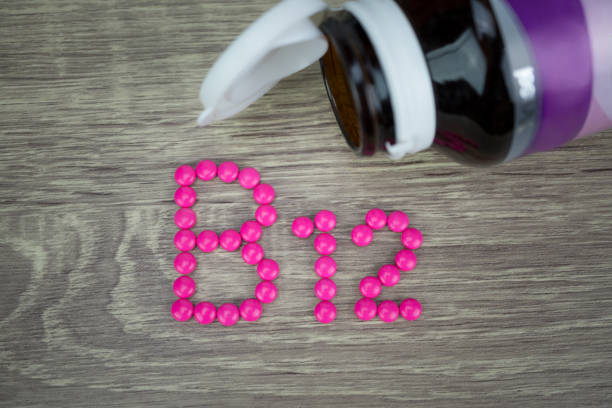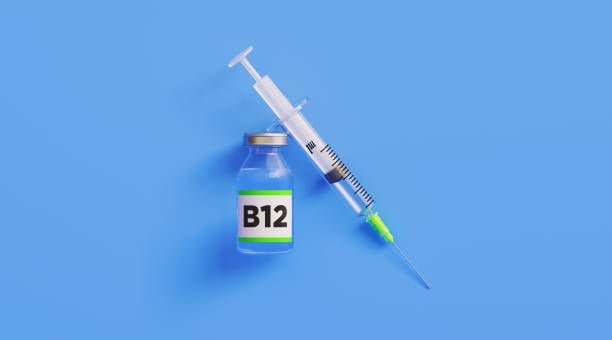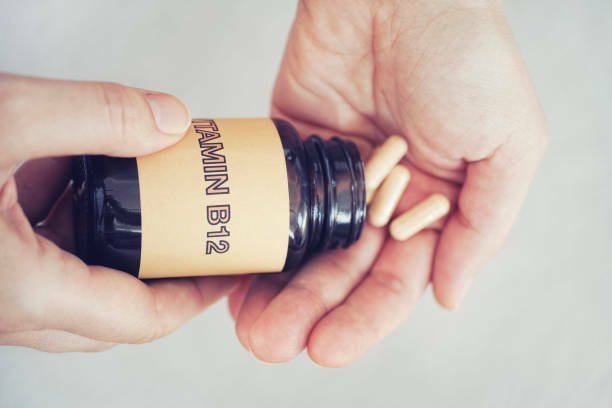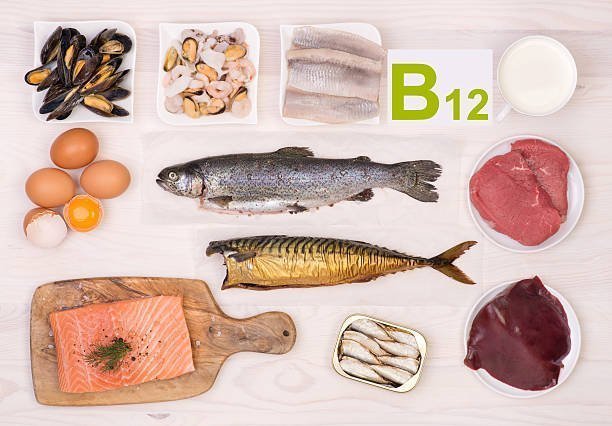Our bodies are intricate systems that require a delicate balance of nutrients, vitamins, and minerals. Among these vital components, Vitamin B12 holds a place of prominence. Why? Because it plays a crucial role in several body functions, including the production of red blood cells, DNA synthesis, and the overall functioning of your nervous system. When our bodies lack sufficient B12, we start experiencing symptoms such as fatigue, weakness, anemia, constipation, loss of appetite, and even mental issues like depression, confusion, or memory loss. Hence, it is essential to maintain optimal B12 levels in our body, whether through diet, oral supplements, or shots.
Unraveling the Importance of B12
Vitamin B12, a water-soluble vitamin, is indispensable to our bodies. It is involved in DNA synthesis, red blood cell production, and the proper functioning of the nervous system. A deficiency can thus have far-reaching effects, varying from mild to severe, affecting multiple bodily systems. Chronic B12 deficiency, if untreated, can lead to a range of health issues, including macrocytic anemia, fatigue, muscle weakness, intestinal problems, nervous system damage, and even neurological issues like depression and dementia.
Symptoms of B12 deficiency can often be subtle at first, manifesting as fatigue, dizziness, palpitations, pale skin, and a smooth tongue. As the deficiency intensifies, the symptoms become more severe, ranging from mood disturbances like depression, memory loss, and behavioral changes to physical ailments such as constipation, weight loss, numbness, and tingling in hands and feet. If the deficiency is left untreated, it can escalate, causing long-term damage to the body.
Vitamin B12 Supplement vs B12 Shot
Vitamin B12 deficiency is a common concern, especially among those with dietary restrictions, certain health conditions, or older people. Fortunately, this is a fixable problem. We have two effective alternatives: oral B12 supplements and B12 shots. However, the question often arises, B12 supplement vs. the shot, “Which is better and more effective?”
The Power of B12 Supplements
Oral B12 supplements are widely accessible and relatively easy to use. They come in various forms, such as tablets, capsules, lozenges, and even liquids. A high-dose B12 supplement can provide a daily dosage ranging from 500 to 5000 micrograms.

Different types of B12 are used in supplements: Cyanocobalamin, Methylcobalamin, Adenosylcobalamin, and Hydroxocobalamin. While Cyanocobalamin is the most stable and affordable, it requires your body to convert it to a usable form. On the other hand, Methylcobalamin is a naturally occurring form of B12. Therefore, it can be absorbed more efficiently by the body.
The daily recommended dietary allowance (RDA) for B12 varies by age, but it’s generally about 2.4 micrograms for adults. However, your healthcare provider might recommend a higher dosage if deficient. But, despite consistent usage of high-dose B12 supplements, some people experience only slight increases in their B12 levels. This happens because the absorption of B12 from supplements is limited by the capacity of intrinsic factors in our stomach. As a rule of thumb, only about 10% of oral B12 dosage is effectively absorbed.
The Impact of B12 Shots
Now let’s talk about B12 shots. These injections go directly into the muscle, bypassing the digestive system and allowing for better absorption. Typically, B12 shots are given on a schedule by a healthcare professional, often weekly or monthly, depending on the severity of the deficiency.

A B12 shot delivers a high dose of vitamin B12 that quickly elevates its levels in the body. This can be a vital boost, especially for chronic deficiency patients. It is also beneficial for people with certain health conditions that limit the absorption of oral B12, like pernicious anemia, celiac disease, or atrophic gastritis.
The Long-Term Implications of Low B12
Chronic B12 deficiency can have serious long-term effects on the body. Anemia caused by low B12 can lead to fatigue, shortness of breath, and dizziness. It can even affect the heart in severe cases, leading to an enlarged heart or heart failure. Moreover, it can cause neurological issues, with some studies linking chronic B12 deficiency to neurological and psychiatric disorders, from depression and memory loss to more severe conditions like dementia. A research study found a significant association between low B12 levels and cognitive decline, underscoring the need for optimal B12 levels for healthy brain functioning.

A Personal Journey with B12 Deficiency
Speaking of B12 deficiency, I can share from my experience that it can significantly impact health and wellness. Since being in remission from colon cancer, I’ve been battling with low B12 levels for the past two years. Unfortunately, the deficiency manifested as persistent fatigue and reduced stamina, impacting my overall well-being.
As part of my regular health monitoring, I get blood work every three months with my oncologist. More often than not, my B12 levels have been consistently below the normal range. Initially, I tried rectifying the deficiency with B12 shots, and the results were encouraging. They quickly and significantly elevated my B12 levels, leaving me feeling revitalized and energized.
However, to maintain my B12 levels, I opted for a different approach. Instead of the shot, I decided to try a high-dose oral B12 supplement of 2500 micrograms daily. After a consistent three-month intake, my B12 levels increased slightly, but I was still below the normal range. This lack of improvement is probably due to the absorption rate of oral supplements. But, again, it all varies depending on individual digestive health and other factors.
Finding Your Optimal B12 Solution
So, what’s the verdict with the Vitamin B12 supplement vs the shot? The answer could be more straightforward, as it depends on individual health status, absorption capacity, dietary habits, and personal preference.
B12 supplements are convenient, non-invasive, and affordable to boost your B12 levels. They might be an excellent option for those with mild deficiency or those looking to supplement their dietary intake.

However, if you struggle with severe B12 deficiency, have a condition that limits your absorption, or require an immediate boost in your B12 levels, shots might be the better choice. They are more potent and efficient, delivering vitamin B12 directly into your bloodstream for direct usage.
In my personal experience, despite the convenience and ease of oral supplements, B12 shots were more effective in managing my deficiency. However, this is my unique experience. Therefore, it is essential to consult with a healthcare provider to determine the best course of action for your individual needs.
Maintaining B12 Levels: Beyond Supplements and Shots
Apart from supplements and shots, several ways to maintain or boost your B12 levels exist. Dietary modification is a crucial aspect, and for those who consume animal products, good sources of B12 include fish, meat, poultry, eggs, milk, and milk products. For vegans and vegetarians, fortified breakfast cereals, plant-based milk, and nutritional yeast can be incorporated into their diets. Probiotics can also play a role in B12 absorption, as maintaining a healthy gut flora is crucial for optimal nutrient absorption.

Your Health, Your Choice
Which is it, the B12 supplement vs. the shot? Unfortunately, there’s no ‘one size fits all’ answer to this question, as it significantly depends on individual health status, absorption capacity, and personal preferences. B12 shots can provide a quicker, more effective solution for those with severe deficiency or absorption issues. However, B12 tablets or capsules could be a suitable, non-invasive option for mild deficiencies or dietary supplementation.
Remember, your health is a journey, not a sprint. Whether it’s overcoming cancer or managing vitamin deficiencies, every step you take toward better health counts. Keeping a vigilant eye on your body’s signals, consulting with your healthcare provider, getting regular check-ups, and making informed decisions are all vital. You are your best health advocate.
The term “Health is Wealth” stands unchallenged in the grand scheme of life. By taking the time to understand your body and its needs, you are investing in a future of wellness, strength, and vitality.



